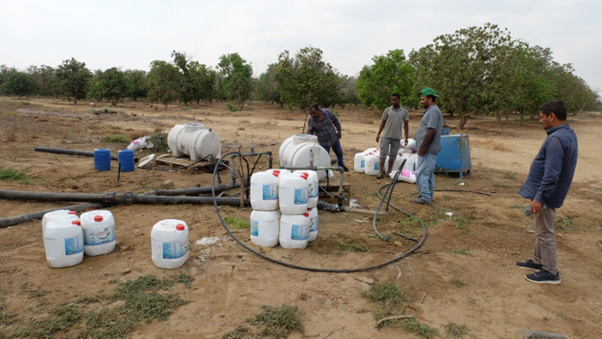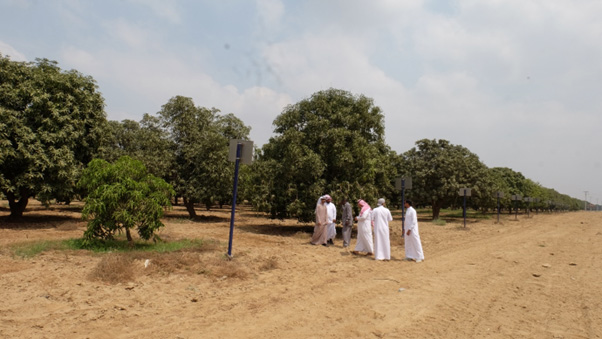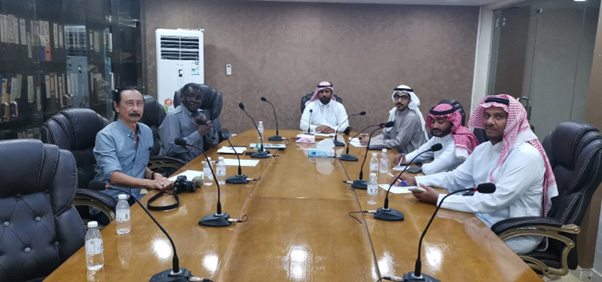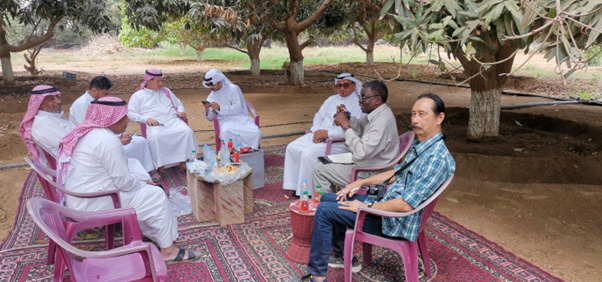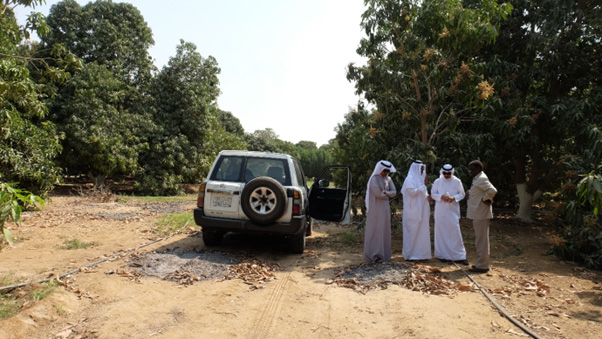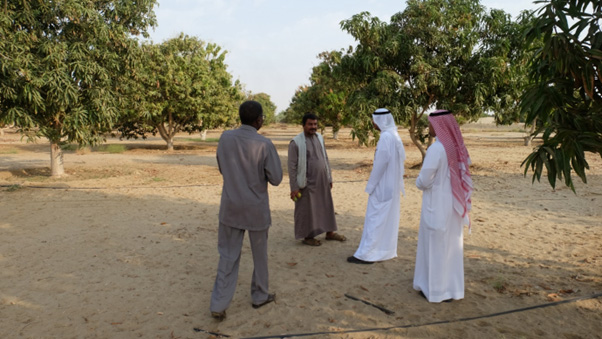International Tropical Fruits Network and King Faisal University are engaged in a project to assess the current development of mango / tropical fruit cultivation in the Kingdom of Saudi Arabia with the overall aim of improving the industry. This is in line with Project initiative 2.10, under the Ministry of Environment, Water and Agriculture (MEWA), which refers to the development of agricultural practices to improve the yield of fruits, vegetables, dates and field crops in the Kingdom of Saudi Arabia. The project was recently initiated with an assessment exercise in the tropical fruit zones of KSA.
The main objective of the assessment was to identify gaps in current mango and tropical fruit cultivation practices and other activities along the value chains that are constrains in driving the industry forward. Identification of such gaps would then require enhancements both to increase productivity and profitability. This includes cultivar selection, best farm practices, improvements in shelf life and market access.
The mission which began on 26 February and ended on 6 March 2023 involved Advisor/consultant from International Tropical Fruits Network (TFNet ) Yacob Ahmad and expert partner from King Faisal University, Prof. Dr. Hassan Ali Dinar. A representative from MEWA, Agricultural Engineer and crop structure project manager, Ir. Fahad Abd. AlRahman AlMahish, was also present during the mission. Inputs for the mission were also contributed by TFNet’s mango expert Mr. Peter Johnson from Australia.
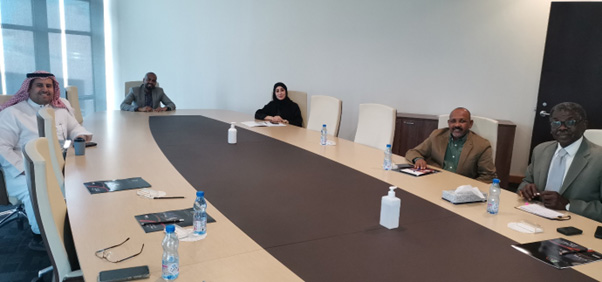
The 10-day assignment was a program of scheduled visits, meetings and discussions as follows:
- Meetings and discussions with partners from the Institute of Research and Consultancy, King Faisal University and Directors and officials at the Ministry of Environment, Water and Agriculture;
- The main activity of the mission was to visit farms and discuss with different categories of mango producers on production and market constrains. The farms visited were in the provinces of Jazan, Al Qunfudah, Assir and Jubail;
- Visit and have discussions with mango researchers at the Jazan mango research center;
- Meet and discussion with other value chain players such as traders and association members;
- Inception meeting with officials from the Ministry of Environment, Water and Agriculture (MEWA) on 6 March to discuss recommendations, including work plan and implementation. This was presented by project consultants TFNet and KFU.
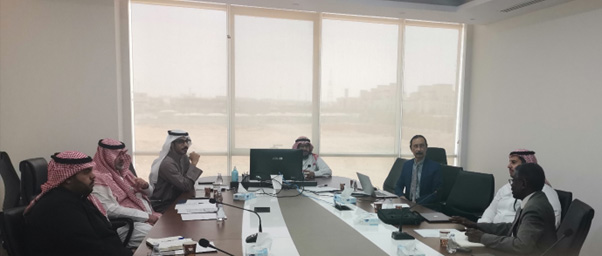
Observations for the assessment exercise were focused on field management practices, common varieties cultivated, postharvest activities, pests and diseases management, water and fertilizer management, market and distribution channels, value chain components and general issues faced by growers in production and marketing. Growers and farms were also categorized according to the scale of operations, whether a company, individual growers or a group on farmers.
Information throughout the mission were also garnered from secondary information sources such as reports and interactions with key industry players.
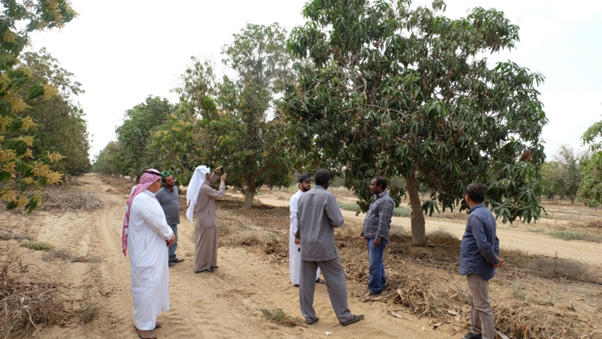
Generally, the TFNet and KFU team found that while mango has been grown for quite some time in the Saudi environment, some recommendations including improvements in production techniques and varietal development are necessary for sustainability. For example, while there are more than 60 varieties available, a careful evaluation to determine ones are most suitable agro-climatically, market accessibility and shelf life needs to be looked into. The adoption of a more efficient production system, including high density planting and optimum water management could also perhaps provide enhancements to the industry.
A complete inception report is currently being prepared by TFNet and will be presented to partners King Faisal University and Project Principal, the Ministry of Environment, Water and Agriculture to be used as a guide in project implementation in the coming years.
